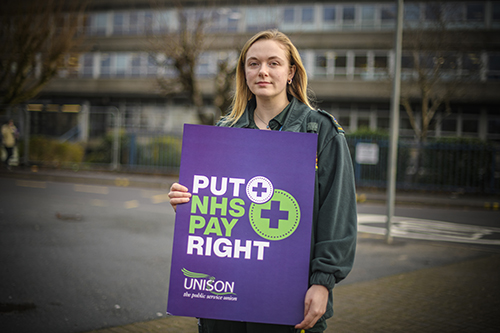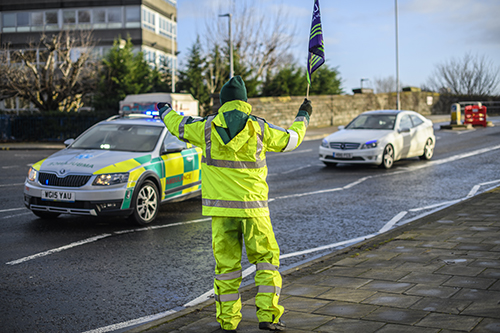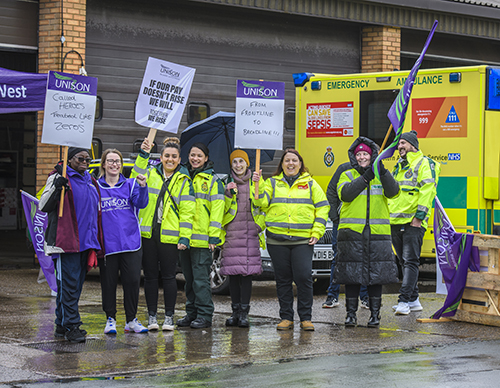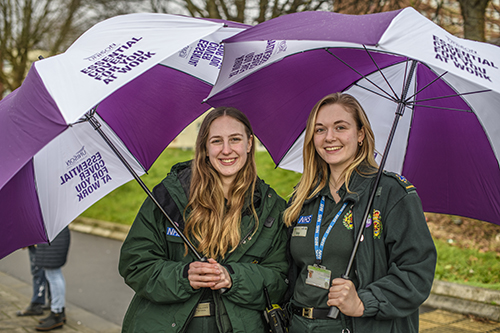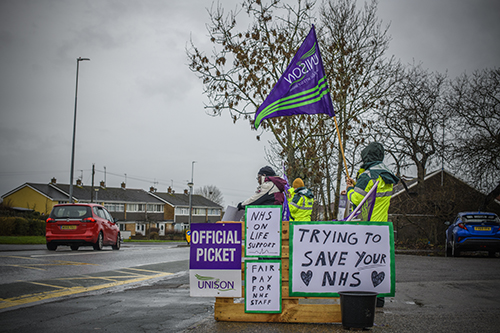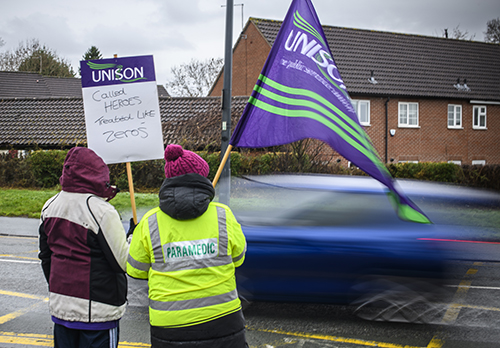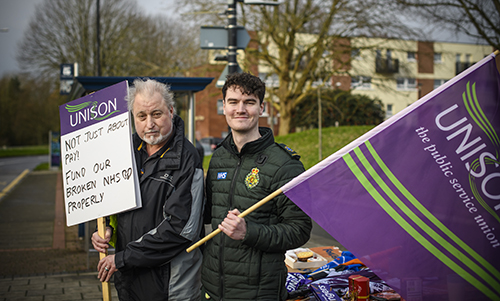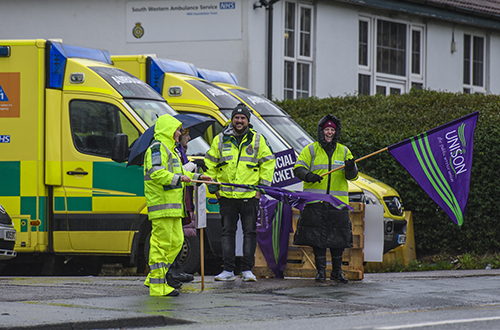Health unions won’t be submitting joint evidence to the NHS pay review body for the next wage round while the current industrial disputes remain unresolved, it has been announced today (Wednesday).
Instead, the 14 unions – representing more than one million ambulance staff, nurses, porters, healthcare assistants, physiotherapists and other NHS workers in England – have called for direct pay talks with ministers.
Unions believe the lengthy pay review body process is not able to deliver what is needed right now. That’s a deal that resolves the current pay and staffing dispute and puts in place a settlement needed to get the NHS back on track.
In the current economic climate, it would be far better if NHS pay negotiations could be convened involving unions, employers and ministers, say the unions.
This should ensure a speedier outcome, and one that could deliver the kind of settlement necessary to turn the NHS staffing crisis around.
The deadline for submitting evidence for the 2022/23 pay year was the end of last January. But it was almost six months later when ministers made public their acceptance of the review body’s £1,400 flat-rate rise. By then inflation had gone through the roof, say unions.
The unions have now decided against a formal collective submission to the pay review body this year, preferring the more direct approach of talks with ministers.
Evidence for the 2023/24 pay round is meant to be submitted today (11 January). Instead, the NHS unions have collated the case for investment in NHS pay into a publicly available document. This outlines the necessity of investment in pay and staffing to the health service, its staff, patients and the wider economy.
Chair of the NHS group of unions and UNISON head of health Sara Gorton said: “The pay review body process doesn’t fit the current context.
“The NHS staffing crisis is so acute only prompt action on pay – both for this and the next financial year – can start to turn things around.
“The public knows ambulance response times are worsening and hospital waiting lists growing because the NHS no longer has the necessary staff to meet demand, nor provide safe patient care.
“Ministers must seize the initiative, get everyone around the table and negotiate a way to the best deal for staff, patients and services.”
Secretary of the NHS group of unions and Chartered Society of Physiotherapy assistant director of employment relations Elaine Sparkes said: “Solving the pay dispute, getting vacancy rates down and providing better patient care must be the government’s number one priority.
“But even if the review body process were to be hurried along as the health secretary says he’s keen to do, it would still take too long.
“Speed is of the essence, as is ensuring wages are high enough for the NHS to retain experienced staff and attract new recruits. Only direct talks can achieve that.”
Notes to editors:
– The 14 NHS unions are: British Association of Occupational Therapists, British Dietetic Association, British Orthoptic Society, Chartered Society of Physiotherapy, Royal College of Podiatry, Federation of Clinical Scientists, GMB, Managers in Partnership, Prison Officers Association, Royal College of Midwives, Royal College of Nursing, Society of Radiographers, UNISON and Unite.
– The executive of the NHS group of unions consists of: Sara Gorton, chair and head of health, UNISON; Elaine Sparkes, secretary and assistant director of employment relations, CSP; Alice Sorby, treasurer and director of employment relations, Royal College of Midwives; Jo Galbraith-Marten, director of legal services & employment relations, Royal College of Nursing; Colenzo Jarrett-Thorpe, national officer for health, Unite; Rachel Harrison, national secretary, GMB.
– The document setting out the case for investment in NHS pay is available here.
Media contacts:
UNISON M: 07778 158175 E: press@unison.co.uk
CSP M: 07917 091200 E: press.office@csp.org.uk
RCM T: 0207 312 3456 E: media@rcm.org.uk
RCN T: 0207 647 3633 E: mediateamhq@rcn.org.uk
Unite T: 07976 832861 E: pauline.doyle@unitetheunion.org
GMB M: 07813 542050 E: press.office@gmb.org.uk
The article Ongoing disputes make it impossible to submit evidence to NHS pay review body, say health unions first appeared on the UNISON National site.
